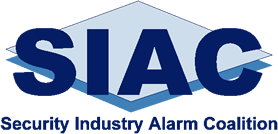This blog serves a good purpose in reinforcing messages related to alarm response issues across the country. Readers are members of the security industry, and you may get information from a number of sources regarding technology, actions taken by police departments or city councils, or new practices that can improve how we manage alarms. At the same time, with all the news coming our way on a daily basis, we can miss things. This reinforces the need for continual and consistent communication that focuses on key issues facing our industry.
A recent case in point is a barrage of news out of Detroit. According to multiple media accounts, if you were unaware, it was reported that Verified Response (VR), or non-response to alarms by police departments, was gaining a foothold there. Because it was widely reported, this might have appeared to be true.
In fact, what was reported was only a small sliver of what was going on. Yes, there is a city council member in Detroit who would like to explore VR. But there is no major move afoot to pursue VR.
Instead, SIAC has worked closely and steadily with the city and police department (PD) officials in particular over the past three years to ensure the security industry implements best practices. Specifically, we’ve partnered with the PD to get two-call verification (Enhanced Call Verification – ECV) implemented. The PD was seeking a 25% reduction in calls for assistance to respond to alarm signals, and since ECV went into effect, those reductions are 29%. Our industry has exceeded the PD’s goal!!!
So, we have a strong success story in Detroit. Does one local city council member still have an issue with calls for police dispatch from monitoring centers? Yes. Do we as an industry still need to work hard to keep driving those numbers down? Yes.
At the same time, the bigger story is more than what was in the news, and we should all remember to look for the fullest information possible before rushing to judgment. This blog hopefully helps you do that. We strive to share a little more than the usual, to give you a better sense of some of the issues shaping the electronic security industry. If we’ve gotten you information you can use, then we’ll consider this blog a success.
